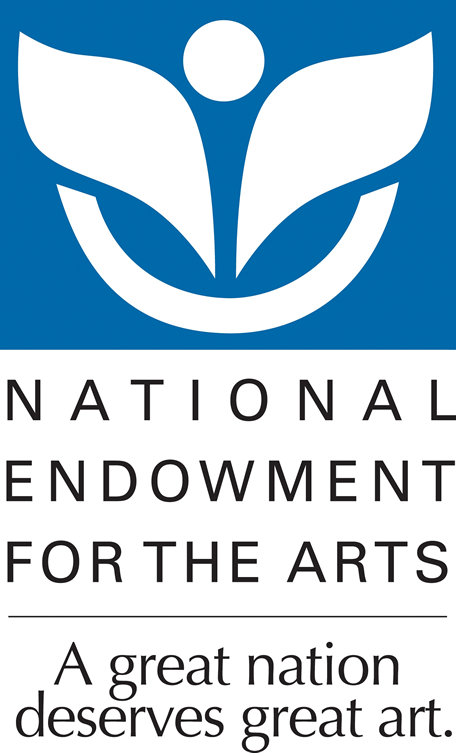 It used to be that the cultural economy didn’t exist, which was terrible.
It used to be that the cultural economy didn’t exist, which was terrible.
Then in the post-war period it was great at promoting things with mass appeal. That was pretty wonderful – it gave us the astonishing cultural power of pop music and movies, but it meant that there wasn’t any money leftover for stuff that didn’t have mass appeal, but was nonetheless valuable. So in stepped the NEA, philanthropists, foundations, and corporations wishing to appear cultured. (This was more their stated goal than their actual goal, even if that, but bear with me). This gives us Exxon paying for Great Performances throughout the 1980s.
That system had big problems, and now it’s breaking thanks to the internet. A lot of the analysis of why it’s breaking runs along the lines of “there isn’t enough money coming in to support us anymore!” That barely scratches the surface.
The cost of creating art has dropped through the floor. Hyperbole barely covers how cheap it is now to make wonderful things. It’s also practically free to distribute wonderful things. Be sure not to overlook the fact that you can pay for things much more quickly and easily as well. That’s important.
Dear the arts community: this is great news. If you think it’s bad news, you’re putting your short term interests over the progress of society.
If we’re not just losing money, then what is happening?
The chance to make and distribute art use to be scarce. And we had elaborate systems set up to pick who got to make and distribute their art (and also get paid for it). But now we have a system where everyone makes and distributes their art as a first step. And the internet does a fantastic job of rewarding popular and viral things with attention and, increasingly, money.
The internet does some other things very well, too. It teaches people how to do things by giving them fantastic models to learn from, and often free teaching materials. It rewards niche content and creators by facilitating communities based on interests; this way you can sell a little to a few or a lot to a lot, and scale your business to your audience like a liquid filling a container. It helps different ideas and bits of creativity connect and flourish almost by themselves, and create these big organic group behaviors by people who don’t even think of themselves as part of a group.
And here’s an important thing, it does create another economic system for artists to be supported, even though right now it looks like more artists and getting smaller pieces of the pie, and arguments are raging about whether the pie is actually growing or shrinking.
How do we fix the new system?
But if the NEA and post-war cultural support ostensibly corrected market deficiencies in the old system, what are the market deficiencies in the new system and how do we correct those?
Just for a start, creators have no leverage with distribution platforms right now, and we as a society have no framework for judging, say, how much of YouTube’s revenue should go to YouTube and how much to video uploaders. We just don’t know how to decide that yet, but at the moment I’d wager that creators aren’t getting enough.
Second, the internet is very good at rewarding “viral” stuff, “shareable” stuff. A lot of that content is simply amazing. But there’s probably a lot of fantastic art that we want to encourage as a society that isn’t so “viral”, and that doesn’t do so well in an internet popularity contest. How do we find that stuff and make sure we still have it?
That’s my start to the discussion, but it’s just a start. What else isn’t good enough about the new economy, and how do we build market interventions for the 21st century that actually do something about it?

EVERYTHING is art.
I’d say that the idea of the new economy being built solely upon the platform of the internet isn’t good enough.
Not that it isn’t a terrific tool for creation and discovery, not that it isn’t changing the very nature of the art economy.
But internet access is by no means universal, and any discussion of “the new system” that assumes internet access (and a modicum of skill) is a given automatically operates within a privileged space.
I realize that’s not the direction you’re going here, but it’s what came to mind.
That’s actually a super important point in basically everything I write about here. “The new system” and “the new economy” is a way a lot of people talk about this stuff, as if when YouTube switched on the entire structure of culture switched tracks immediately.
I often like to point out to people in these discussions how many people watch television, and the explosive growth of newspapers in India. The “new system” we’re all analyzing isn’t totally pervasive yet, but we do still need rules to figure out how to function in it, since it’s growing and we don’t see where it’ll stop growing.
I agree with you – I just can’t always say “not everyone does this!” since it would have to appear as a parenthetical in like every sentence.
Maybe when I have more time and research handy I’ll talk about the borders of the internet arts economy…
Makes sense; it’s an old question in a changing game. Some voices have prioritized access over others: how do we deal with this? I would love to see a post from you on the borders of the internet arts economy. So many interesting possibilities there.
Trying to write without constant caveats is one of the reasons I don’t write hefty posts about feminism all the time.